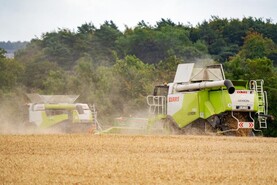Lockdown 2.0 ended and we moved from Level 5 to Level 3. The shops opened countrywide. The queues started in the middle of the night outside some stores. Penneys seemed to be the worst in Cork. Imagine the most sought-after items were pyjamas! Have we lost our marbles entirely? How do we explain the need for pyjamas? I could imagine announcing in this house: “I’ve set my alarm for 4.30am. Don’t stir when you hear the car leaving. I’ll be just running into Penneys for pyjamas.” There would be some reaction and the language would be interesting.
Mum, there are people who have never seen somebody they love in intensive care not knowing if they are going to live or die
This simple story probably does sum up the dilemma that the National Public Health Emergency Team (NPHET) and the Government have had to address. It is that some people just do not get it and will continue to do what they want to do regardless.
As I’m preaching on this. My daughter Julie concludes saying: “Mum, there are people who have never seen somebody they love in intensive care not knowing if they are going to live or die. We have and that’s why we understand and never want to be in that position again.” Maybe it is that simple.
The move to Level 3 has made little difference to me. I have stayed away from the high-street shops and continue to get the groceries locally or online. My dislike for shopping grows daily. When my husband Tim volunteers to do it; I’m really grateful.
COVID-19 Strain
Last Saturday morning Tim saw that I had a list on the kitchen counter on a cereal box top. He remarked that he’d do the shopping at a later stage for me. I was thrilled. For me, it is a gift to have the grocery shopping done for me, particularly in these trying times.
I was busy doing the Christmas baking and the workload that I had for the day was time consuming. If I spelled it out for you, it was no more daunting than any other household around the country. It included the making of a few plum puddings, a few loads of washing, and making the meals.
I felt like crying. Of course this reaction was irrational and reading this you’re probably saying: “What the hell?”
Tim went off to do the once-a-day milking and I began mixing a pudding. Tim returned and said that he’d to go to the co-op for something. He’d pick up a few things on the way back but he wouldn’t do the shopping because my list wasn’t clear. For example, it included sultanas. “How much, how many, how am I to know!?” he quipped. Fair point I suppose. He went off. I felt like crying. Of course this reaction was irrational and reading this you’re probably saying: “What the hell?”
I realised that I was starting to crack under the COVID-19 pressure. Shopping makes me anxious and uneasy at the moment. Our lives and experiences have shrunk and it’s only natural to feel sadness about it sometimes.
I took great care in writing my list in the order that he’d find them in the shop and we’d a good laugh about it this morning.
This was manifesting itself in a fuss about a few groceries. It is important to pause and understand when we are feeling the pressure. Then Tim was back. Passing through the kitchen he said: “If you write out that list properly; I’ll do the shopping for you.”
He had thought about it and guessed I was upset. I took great care in writing my list in the order that he’d find them in the shop and we’d a good laugh about it this morning.
Improve the bottom line
The workload on the farm is slackening which frees up time to get things fixed and set up for the spring. In early November the grass walk showed a farm cover of 540kg dry matter/hectare which indicated that grazing had to stop. Now the Pasture Base budget is forecasting a cover of 1,000kg for 1 February which is ideal. It means we made the right decision. It proves too, that following the advice that Teagasc and Pasture Base offer will have the farm set up properly for the spring.
The need for the cows to have a 60-day dry period was reinforced
There was a conversation this morning about when milking might stop. The need for the cows to have a 60-day dry period was reinforced. The cows are usually dry for Christmas.
This year the men might milk on later calvers through Christmas. “It’s not like we’ll be going anywhere. We might as well improve the bottom line,” said my son Colm. There was general agreement.






 This is a subscriber-only article
This is a subscriber-only article










SHARING OPTIONS: